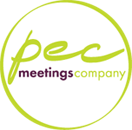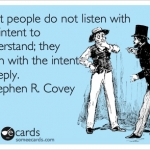Outsourcing with Success
You’ve made the decision to outsource the planning of your next conference because you understand the multitude of responsibilities that come with bringing your meeting from concept to life. Companies often find themselves faced with a shortage of time, limited manpower, a shrinking budget, and policy changes. Outsourcing site selection, contract negotiations and meeting planning has become more relevant given the number of advantages and solutions that can result.
The planning process should be stress free for you now. Sure, you still need to make decisions, but by hiring an event planner you alleviate the time and money needed to endlessly research, procure, and confirm event elements such as hotel selection and contract negotiations, technical production, logistics, collateral development, menu planning, etc.
Hiring a reputable firm with a staff that has the right skills and experience will allow you to concentrate on the content of your meeting. The firm should execute your event without glitches and leave you with a measurable ROI. The success of your meeting depends upon it.
When hiring a professional planner, consider a few important steps before making a final decision on the right company for the job.
First, take good time to outline your meeting purpose, objectives, vision, and estimated budget. The clearer you are about your ideas, vision, and expected ROI, the more meaningful your discussion with prospective planners will be and your ability to identify a planner who can understand and execute effectively will be easier.
Consider sourcing a meeting/event planner through local CVB’s, meeting suppliers, and hotels. If you want to know who has a reputation for delivering services or expertise in a particular market, check with the local convention and visitor’s bureau. Many meeting planners are active members and maintain their relationships. It’s certain that the planning firm has worked with hotel sales and catering divisions that are very familiar with the integrity of the firm, their expertise, and the quality of service they deliver. Hotels and the CVB’s will certainly be honest with you as it reflects poorly on their reputation if they are providing an uninformed or less than truthful opinion.
Next, do some preliminary research and make sure that the company is legitimate and insured. It is far too easy now days to set up an online company that does not have a business license to operate or the insurance to cover any potential incidences.
Choose a planner that works full-time in the industry. A full-time planner is often more educated and aware of industry trends and best practices. They have more contacts and connections and have buying power due the volume of business they do with suppliers, which in turn can save you money.
Also, find out what kind of experience the firm has in planning events of similar size and scope. No amount of knowledge can beat experience. Ask them to provide one or more case studies. What exactly did they do? Were there any challenges and if so, how did they meet those challenges? If you are planning a charitable golf outing, have they actually planned a golf outing? If you are planning an economic summit that will include attendees of multiple cultures, make sure the staff has the right training and experience to appropriately communicate and remain respectful of those cultures. Whether it’s a special gala, or a high-tech corporate meeting, the rules of hiring a meeting or event planner remain the same. You want to hire someone who has expertise with your type of event.
Consider a face-to-face interview with a few prospective meeting planners. Prepare in advance and tell them as much as you would like them to know. They should be good listeners. They will look you in the eye and take some notes. This designates an active role in not just listening, but also hearing what you have to share about your meeting. Ask them about their experience and how they plan for contingencies. Then ask if they have any questions. They should ask questions. A good planner will probe to get more information. It shows a genuine interest in their desire to fully understand what your expectations are. The truth of the matter is that a good planner will also screen you.
Find out how they charge for their services. It’s very important for you to ask them to disclose their terms and fees up front. Do they charge by the hour and the cost of materials, or is the company compensated by a percentage of mark-up on all meeting elements? If you are hiring the firm to provide hotel site selection and contract negotiation services, you should not be paying anything out-of-pocket. The firm is compensated by a commission that is paid directly by the hotel for all sleeping rooms actually occupied during the meeting.
Instead of asking for references, it’s best to look for references yourself. Asking the planner for references will most like provide you with ONLY the companies that had a positive experience. Instead, go to their website and seek out companies they’ve done business with. Call the company and ask for the individual who plans their meetings or events. You may be transferred to the Administrative Assistant, the V.P. of Marketing, or an internal planning department within the company. Inquire about the work the planner did on their behalf. What were their specific tasks and responsibilities? Ask about the timeliness of their communication and if their work was detailed and thorough. Did they under-promise and over-deliver or vice versa? Ask if they managed the meeting on-site. How did they monitor the attendee experience, food, beverage, entertainment, safety, and other elements? Did the planner allow them the opportunity to give full attention to the content and guests?
You want to select a planning firm that you can trust, is easy to work with and is honest. They are going to work closely with you for several days, weeks or months to ensure your meeting exceeds your expectations.








